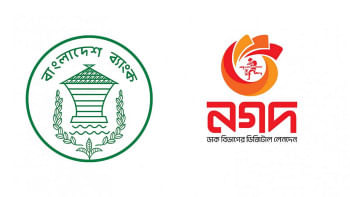From words to worlds: A journey towards multilingualism

American journalist Flora Lewis once said, "Learning another language is not only learning different words for the same things but learning another way to think about things."
Lewis describes in a few words that learning foreign languages goes beyond the basic communication requirements and the learning of mere words. She sheds light onto the magical aspect of speaking in other languages where it shifts horizons, discovering a new version of life and opening perspectives into the same concept in a different way. It truly means in most places where you go, you are a "local" there.
In today's increasingly globalised world, having proficiency in multiple languages can open the world for you. This means gaining a wider range of musical experiences, having access to global business and work opportunities, understanding the various cultures of the world, and engaging with literature, films, and other art forms that may have been inaccessible before. Whether you are aiming for admission to top-tier universities, mastering different cultural expressions, seeking the best job opportunities, or simply wanting to expand your linguistic repertoire, learning a third language can always be rewarding.
The language learning market was valued at $52.7 billion in 2022 and is forecasted to reach $337.2 billion by 2032, with a CAGR of 20.8 percent. People, mostly the young, from all over the world are learning their preferred third language via in-person classes or online, from French, Spanish, and Mandarin to Arabic and German. According to market research, the global e-learning market is projected to reach $325 billion by 2025, with language learning being one of the fastest-growing segments. Young students are said to be some of the most eager candidates willing to learn a third language, be it to better understand the music of their foreign artists or to get a better chance at enrolling at top-ranked universities.
Fluency in a third language can be a game-changer when it comes to seeking admission to prestigious universities in particular. Many top-ranked institutions value multilingual applicants, as they bring a unique perspective and the ability to navigate diverse academic and cultural environments. Similarly, in the job market, employers often seek candidates with language skills, as they can effectively communicate with clients, partners, and colleagues from around the world, giving them a competitive edge.
There are numerous options through which one can embark on this linguistic journey. Language schools, language clubs, online platforms, or cultural centres while individuals have plenty of resources to choose from. Institutions like Glenrich International School offer a French Language Program accredited by Alliance Française de Dhaka with certification options. Learning a different language from an early age, such as French, can be extremely beneficial. Many international organisations, like the UN, EU, and UNESCO, use French as an official or working language, providing a competitive edge for those who can communicate effectively in it. According to the Organization of International Francophonie (OIF), there are an estimated 220 million native speakers and around 320 million total speakers of French in the world. As a language that transcends geographical boundaries, French has become an essential tool for engagement in international communication, cultural exchange and economic cooperation.
But, no matter which language, it is crucial to get introduced to a new language early in life. Research suggests that the optimal age to start learning a new language is during the first few years of life. This is when children have a natural capacity for language acquisition. Therefore, starting language learning from an early age can lay a strong foundation for linguistic proficiency and cultural understanding.
The writer is a French Teacher at Glenrich International School.

 For all latest news, follow The Daily Star's Google News channel.
For all latest news, follow The Daily Star's Google News channel. 



Comments